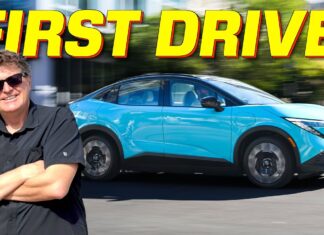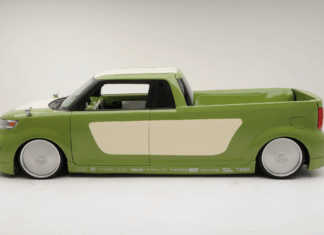Today, VW and Rivian launched a new joint venture meant to improve EV tech under both automakers.
Back in June, Rivian and Volkswagen Group announced a new joint venture which would ultimately work on next-generation electrical architectures and software for new models over the next several years. Back then, each company talked about what it anticipated as a result of the tie-up, but both actually launched their actual JV agreement on November 13. As part of that process, Volkswagen Group further announced it would up its initial $5 billion investment in Rivian to $5.8 billion, in exchange for a 50% stake in the venture.
“The partnership with Rivian is the next logical step in our software strategy,” said Volkswagen Group CEO Oliver Blume. “We have a clear plan to offer our customers the best products and digital experiences at attractive prices through state-of-the-art development processes, innovative technological approaches, and a competitive cost base driven by synergies.”
Moving beyond sweeping rhetoric and getting into the actual nuts and bolts of this joint agreement, both companies say this venture is “enabling” the launch of the Rivian R2 in 2026. As for Volkswagen, the development will “support the expected launch of the first models…as early as 2027.” (Not-so-subtle hint: They’re almost certainly talking about the Scout Traveler SUV and Terra pickup.)
The Volkswagen-Rivian joint venture will leverage and evolve Rivian’s existing modular architecture, and carry a sharp focus on over-the-air software updates as well as architectural improvements. Through 2027, Volkswagen contends the $5.8 billion investment — in part for the intellectual property licenses associated with Rivian’s software — will balance out future R&D costs it would have taken on had it developed selected next-generation MEB-platform models on its own.
Each company will put up a co-CEO to lead the joint venture, which will technically operate as an independent company from either Rivian or Volkswagen.
Chief software Wassym Bensaid from Rivian will be one of the two heads, while VW Group will field its chief technical officer, Carsten Helbing. The new company will be called Rivian and VW Group Technology, and will be based in Palo Alto, California.
Volkswagen Group says its already made a $1 billion investment through a convertible note. As of today, with the closing of the joint venture deal, it will invest another $1.3 billion for the IP licenses and a 50% stake in the joint venture. The remaining $3.5 billion will come through a mix of equity in Rivian, a convertible note and debt “based on clearly defined milestones”.
Wednesday’s announcement lays out “further investments” as tied to operational, technical and financial milestones, which in part likely involves Rivian restarting and completing construction of its Stanton Springs, Georgia manufacturing plant, which has been on hold since March. The automaker also applied for a federal loan to restart construction, but the U.S. Department of Energy has not yet made a decision. The October 24 filing Rivian made to the DOE outlined a goal to begin partial operations in Georgia in the third quarter of 2027, with production ramping up by 2028, past the scope of this joint-venture as it’s currently arranged.
While the exact milestones VW Group mentions are unclear to the lay observer, this does lay out a steadier path for Rivian to effectively launch the upcoming R2 SUV on schedule, in the first half of 2026. At first, the company will build the R2 alongside its current R1 models and the RCV (i.e. the “Amazon van”) in Normal, Illinois. If it can get the Georgia plan online along its revised schedule, though, it would move production down to Georgia, which is (for the sake of “synergies”) a hop away from Scout Motors‘ manufacturing plant in Blythewood, South Carolina.


























